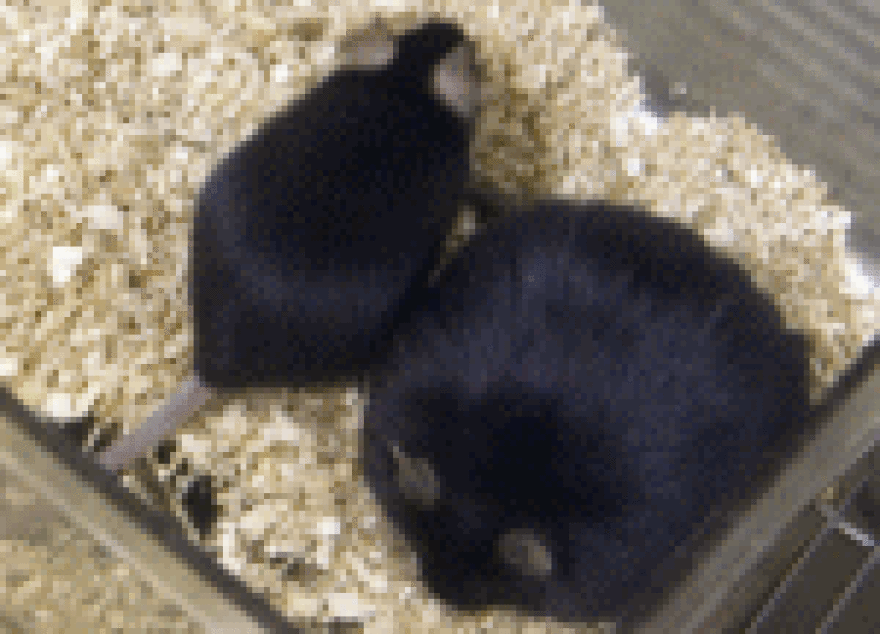By Julie Bierach, KWMU
http://stream.publicbroadcasting.net/production/mp3/kwmu/local-kwmu-649366.mp3
St. Louis – Obesity rates are skyrocketing around the world. And scientists believe that along with our lifestyle, it could have something to do with our genetic landscape, and the trillions of microbes living in our gut.
As part of our series on genetics called, "The DNA Files," KWMU's science reporter Julie Bierach explains that here in St. Louis, a group of scientists are researching not what we put into our bodies that makes our waistlines grow, but what's already living there.
You may remember hearing about research on something that most of us would label disgusting: gut bacteria. Those two words conjure up a not so pretty image in most of our minds. But to Dr. Jeffrey Gordon at Washington University, who's conducting that research, it's not that gross at all.
"Most people have an image of bacteria or microbes as very war-like, some conflict, some commotion, some detrimental affects of the relationship, yet that's quite far from the truth, Gordon said. The vast majority of our encounters with microbes are beneficial."
Dr. Gordon studies bacteria at Washington University's Center for Genome Sciences. He says trillions of microscopic organisms colonize our intestines, helping break down nutrients that we can't digest on our own.
"This community of bacteria is really a metabolic organ, it's an organ within an organ within our gut. And its part of who we are, and that variations in the composition of this microbial community may reflect our state of health."
Inside Dr. Gordon's lab, rows of big plastic bubbles encase hundreds of germ-free mice. The room hardly smells like a germ-free environment but graduate student Peter Turnbaugh says these mice are living in sterile conditions and are very important to their research.
"We might colonize the germ-free mice with a specific group of bacteria to see how it affects the host, or compare what happens when you take a community from an obese mouse and colonize a germ-free animal versus taking a lean mouse community and colonizing another germ-free animal," Turnbaugh said.
In one germ-free cage, three black mice are playfully pouncing around. Two of them are double, or even triple, the size of the third.
These mice are all liter mates, but these two are null for a mutation in the leptin gene, and so they're genetically obese," Turnbaugh said.
It's through studies in mice that Dr. Gordon and his team have found a correlation between the amount of fat we have in our body and the types of microbes in our gut. They found that in obese mice, as well as, obese humans, there's a dramatic shift in the types of microbes that live in our gut.
So, Dr. Gordon says when considering the factors that contribute to obesity, we should consider the structure of our gut bacteria.
"So some individuals may be able to harvest slightly more energy from a given diet depending on the structure of their microbial community, others slightly less," Gordon said.
And if that individual doesn't expend that energy through exercise, according to Dr. Gordon, the pounds can add up fast.
So how do we acquire our gut bacteria? The answer could be in our DNA.
Gordon is studying a total of 60 sets of identical and fraternal female twins and their mothers to try to understand the transmission of microbes from mother to child. Dr. Claire Fraser-Liggett is the Director of the Institute of Genome Sciences in Baltimore, Maryland. She's collaborating on the study.
"We think that these differences in bacterial composition likely play a key role, but it's also very likely that host or human factors, differences in human DNA sequence may also result in different susceptibilities to obesity," Fraser-Liggett said.
Researchers will isolate and sequence DNA from the microbes found in stool samples produced by the twins and identify the genes that are present.
Dr. Gordon hopes the study will result in a new series of diagnostic tests that will allow a doctor to determine the health of an individual based on the structure and function of a patient's gut bacteria. Ultimately, he hopes that doctors will be able to come up with new treatments for obesity by simply manipulating our "microbial" selves.
This project is made possible with support from The DNA Files, a project of SoundVision Productions. More information is at dnafiles.org.

